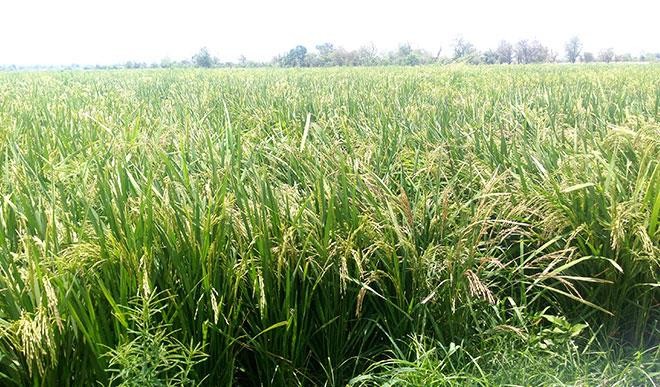Kano, Jigawa rice farmers record bumper harvest
Rice farmers in Kano and Jigawa states are looking forward to a bumper harvest this year following adoption of new agronomic practices introduced through the World Bank’s water project. Transforming Irrigation Management in Nigeria (TRIMMING), in collaboration with agricultural development agencies introduced the programme in the respective states. No fewer than 2500 of the farmers […]


Rice farmers in Kano and Jigawa states are looking forward to a bumper harvest this year following adoption of new agronomic practices introduced through the World Bank’s water project.
Transforming Irrigation Management in Nigeria (TRIMMING), in collaboration with agricultural development agencies introduced the programme in the respective states.
No fewer than 2500 of the farmers were trained under the scheme on best approaches to rice farming with a view to improving their annual yield and help in sustaining food security in the country.
Some of the farmers who spoke to our reporter during the farmers’ field days in Jigawa and Kano said they were expecting more than 100 per cent increase in their output this year describing the new innovation as more “easier and economical” in comparison with their old practices.
They identified pest and weed control as their major challenges over the years noting that the current innovation has given them better option at no cost.
Sani Husseini Burtalawa one of the farmers that spoke to our reporter in Kura local government area, one of the farming communities in Kano, described the new innovation as a relief not only to farmers but government as well, urging farmers to embrace the new innovations for better productivity.
He said, “Before the acquisition of the skills we have been spending a lot especially on chemicals and fertilizer with little improvement in output, as a result of these new innovation we come to realize that all this while we have been damaging our farm lands because of our indiscriminate use of fertilizer and chemicals. Now instead of using chemicals for pest control you can use leaves of neem tree and achieve better result’’ he said.
He said out of the plot of land that used to give him maximum of 70 bags, he had so far harvested close to 150 bags.
Salamatu Ibrahim Garun Malam added that the innovation was more economical, stressing that spending on basic farm inputs including chemicals, fertilizer had reduced by 75% and the yield also improved by almost 100 percent.
TRIMMING’s agri-business specialist, Malam Hallai Garba urged the government at all levels to recruit farm extension service workers to train local farmers on best agronomic practices.
He made the call in Kano during the graduation ceremony of 1300 farmers trained under the World Bank’s project in Kura local government area of the state.
He emphasised that unless farmers are introduced to new innovations in agricultural practices their annual yield will always fall below expectations.
He said training the farmers would enable them diagnosed and address agronomic problems on their farms at formative stage.
He decried the current farmer/extension worker ratio in the country saying it is far below the World Bank standard.
‘‘The recommended rate by World Bank is one extension worker to 30 farmers but today our extension workers in Nigeria, each of them is attending to 3000 farmers and we believe that this ratio is not the best.
He also advised farmers to change their orientation towards farming by taking it as a business rather than an activity.
